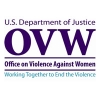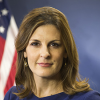Podcast Archive
HBCUs: Tips for Applying for and Using OVW Grant Awards
In this episode, Office on Violence Against Women grant specialist Jessica Neal interviews Dorian Johnson, formerly a project director at Spelman College in Georgia, to discuss how OVW funding through its Campus Program benefited students and provided new training opportunities to faculty and staff. Johnson and Neal also talk about the importance of OVW’s grants for Historically Black Colleges and Universities (HBCUs) and the vital role that technical assistance providers play in supporting grantees.
Peer Review: An Essential Step in OVW's Award-making Process
In this episode, OVW’s Peer Review Working Group joins Patchwork to discuss an integral part of our grantee application review process – peer review. Peer review is a collection of experts from the field coming together to evaluate grant proposals based on the requirements outlined in each program’s solicitation. The working group also share answers to frequent questions that they receive, as well as contact and submission information for interested peer review applicants. Join Darlene Johnson, Neelam Patel, Myrta Charles, and Sandi Van Orden, as they shed light on this important step in award
Addressing Misconceptions to Understand and Serve Victims and Survivors of Stalking
In our first episode of the new year, Jennifer Landhuis, the Director of the Stalking Prevention and Resource Center (SPARC), joins Patchwork to discuss common misconceptions surrounding stalking, including how abusers are misusing technology. She also shares available resources for OVW grantees as well as the public to educate on stalking, identify when someone is being stalked, and help victims and survivors of stalking.
Engaging Men and Children as Allies in Ending Gender-based Violence
Ending gender-based violence requires effort from everyone.
In this episode, Kellie Greene, a program specialist from OVW, joins Patchwork to share how teaching children at a young age about healthy relationships and engaging men as allies can get us closer to ending gender-based violence. She also shares innovative approaches to engaging these populations, as well as showcases two examples of this forward-thinking work.
Honoring a Survivor’s Unique Human Trafficking Experience is Vital to Providing Appropriate Services
Human Trafficking is a crime that affects all socio-economic backgrounds and it does not discriminate based on race, education level, citizenship status or gender.
In this episode, Savannah Sanders, author of Sex Trafficking Prevention: A Trauma-Informed Approach for Parents and Professionals, and a survivor herself, joins Patchwork to share her story. She shares what she has learned about the field and how to help survivors of human trafficking on their paths of healing.
Sexual Assault Nurse Examiners Assist Survivors at the Intersection of Health and Justice Systems
For many victims of sexual assault, the road to recovery and becoming a survivor begins with the care of a nurse who is trained to help in the critical moments following a violent crime. These nurses are commonly referred to as a sexual assault nurse examiner, or SANE.
In this episode, Kim Day joins Patchwork to share stories and advice that she has collected during her time working with victims as a SANE. She defines what she views as the single most important role a SANE can fulfill when they have a patient in their care and paints an image of what future SANEs can expect their training to
Addressing Abuse and Neglect Within the Elder Community Requires Listening -- and Believing
Elder abuse is generally thought of as exploitation and financial abuse perpetrated by strangers, however the abuse commonly comes from people who are known and trusted and it often includes sexual violence and stalking. Kristin Burki, the Director of the National Clearinghouse on Abuse in Later Life (NCALL), explains how sexual abuse of elders is a form of power and control and how the crimes often create unique dynamics that complicate responses. In this episode, Kristin shares her outlook on the future of supporting survivors of elder abuse.
Addressing Cultural Differences to Support Victims of Gender-based Violence
Ending gender-based violence requires effort and awareness. Unique cultural differences must be accounted for and included in every advocates’ plan of care if they intend to work from a trauma-informed perspective, according to Dr. Tricia Bent-Goodley. In this episode she shares how misconception can hide a problem within a community, elaborates on the idea that community perception is critical to understanding the victim’s story, and offers a message to future generations of social workers.
Resource Sharing Project Helps Those Impacted by Sexual Assault
The Resource Sharing Project is part of a national movement to end sexual violence. They provide support to coalitions across the country that serve victims of sexual violence.
In this episode, Kris Bein, the Assistant Director at the Resource Sharing Project, and Monika Johnson Hostler, the Executive Director of the North Carolina Coalition Against Sexual Assault, join Patchwork to elaborate on creating safe spaces for victims. They discuss challenges advocates have faced during the COVID-19 pandemic and share their positive outlooks on how the field will continue to evolve in order to serve
ATF Discusses Their History and Mission
Acting Director for ATF Regina Lombardo speaks with Tom Chittum, Assistant Director of Field Operations for ATF, about the bureau’s history, the role ATF plays in not only law enforcement, but also regulation and how technology has changed the way ATF completes their mission.
ATF Agents Protect Victims of Domestic Violence by Enforcing Federal Gun Laws
Regina Lombardo leads the Bureau of Alcohol, Tobacco, Firearms and Explosives. After three decades in the field, Lombardo understands the nuances and details that are involved in making a successful firearms-related case against a dangerous criminal, including perpetrators of domestic violence. In this episode, she shares her holistic approach to working with victims of domestic and gun violence and describes how she worked to ensure the resources are available in ATF field offices across the nation. The first woman to lead the ATF, she discusses the role of partnerships with other law
U.S. Attorneys Protect Victims of Domestic Violence by Enforcing Federal Gun Laws
Firearms in the hands of abusers dramatically increase the risk of homicide for victims of domestic violence. Law enforcement officers face significant danger when responding to domestic violence emergencies where a gun is present. United States Attorneys are taking a leading role in working to reduce the danger.
In this episode, Erin Nealy Cox, the US Attorney for the Northern District of Texas, describes how she enforces gun laws to keep people safe. She describes how federal prosecution serves victims of domestic violence by eliminating the need for their testimony in court.













